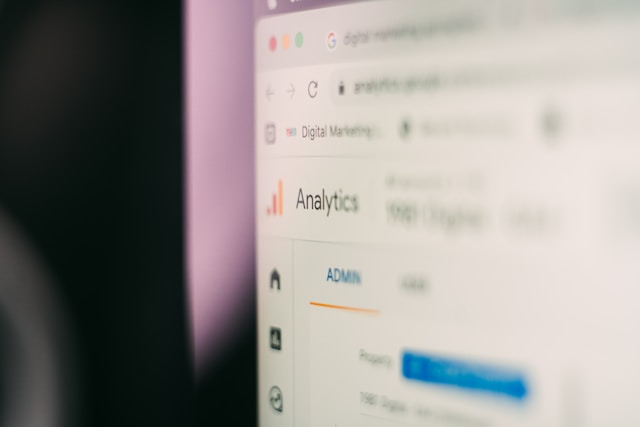In today’s fast-moving digital landscape, staying ahead in search engine rankings requires more than just basic keyword stuffing or backlinking. Search engines are smarter, users are more demanding, and the competition is fiercer than ever. That’s where AI in SEO comes into play.
Artificial Intelligence (AI) is transforming the way websites are optimized for search engines. From keyword research and content creation to technical audits and user engagement, AI tools are helping marketers make smarter decisions and work more efficiently. In this article, you’ll learn how to use AI to improve your website SEO and take your digital presence to the next level.
Understanding AI in SEO
AI refers to the ability of machines to perform tasks that typically require human intelligence. In the context of SEO, AI helps analyze large sets of data, predict search trends, and automate repetitive tasks.
Machine learning, natural language processing (NLP), and predictive analytics are just some of the AI-driven capabilities now integrated into modern SEO tools. These technologies allow businesses to uncover insights, optimize content, and enhance performance more precisely than ever before.
AI Tools for Keyword Research
Keyword research is the backbone of any effective SEO strategy. Traditional methods involve sifting through spreadsheets and search volume reports, but AI tools can now streamline and supercharge this process.
Platforms like SEMrush, Ahrefs, and SurferSEO use machine learning to suggest high-impact keywords based on current trends, competitor analysis, and user behavior. These tools also help determine search intent, so you know whether to create an informational blog post or a product landing page.
AI can even analyze the long-tail keyword landscape to uncover hidden opportunities that your competitors may have overlooked. This allows you to target low-competition, high-conversion phrases with precision.
AI for Content Creation and Optimization
Content is still king but with AI, it’s getting smarter. AI content creation tools like ChatGPT, Jasper, and Writesonic can generate blog posts, meta descriptions, headlines, and even video scripts that are SEO-friendly.
These tools analyze top-ranking content for a given keyword and generate recommendations to help your content compete. This includes optimizing for readability, keyword density, semantic relevance, and internal linking.
AI can also help with topic clustering, organizing your content into logical groups that support SEO through pillar and cluster strategies. This boosts your website’s authority and visibility in search engines.
Moreover, AI-driven platforms like Clearscope and MarketMuse can evaluate your draft content and score it based on SEO potential, suggesting adjustments to meet the criteria used by search engine algorithms.
Technical SEO with AI Assistance
Technical SEO is often complex, but AI simplifies it through intelligent automation. AI-powered tools like Screaming Frog, Sitebulb, and DeepCrawl can conduct comprehensive site audits that identify:
-
Broken links
-
Duplicate content
-
Redirect issues
-
Crawl errors
-
Page speed bottlenecks
These tools not only highlight problems but also suggest fixes, often prioritizing them based on impact. AI can also automate the implementation of structured data or schema markup, helping search engines better understand your content and improving your chances of earning rich snippets in search results.
AI for User Experience and Engagement
User experience (UX) is now a ranking factor in Google’s algorithm. AI can analyze how users interact with your website and provide actionable insights to improve navigation, content layout, and page speed.
For instance, AI can:
-
Track scroll depth and click patterns
-
Analyze bounce rates and session duration
-
Identify which elements cause friction or drop-offs
Additionally, AI chatbots improve user engagement by answering queries instantly, reducing bounce rates, and keeping users on-site longer all of which indirectly support SEO performance.
AI personalization engines can dynamically alter website content based on the user’s behavior, location, or preferences, creating a more tailored experience that drives better engagement.
Monitoring, Reporting, and Predictive Analysis
Monitoring SEO performance manually is time-consuming. AI tools take it a step further by not only collecting data but also interpreting it. Platforms like Google Analytics (GA4) now offer predictive analytics and AI-powered insights that highlight which pages are underperforming or likely to improve with small adjustments.
Tools like PaveAI turn analytics data into actionable marketing reports, helping you prioritize tasks based on ROI potential. AI can also forecast search trends, allowing you to plan content in advance and ride the wave of emerging topics before your competitors do.
Risks and Limitations of AI in SEO
Despite its benefits, there are some caveats to consider when using AI to improve SEO:
-
Over-reliance on automation: Blindly trusting AI-generated content without review can lead to off-brand messaging or factual inaccuracies.
-
Duplicate content risk: Some tools may inadvertently generate content similar to existing web pages.
-
Ethical concerns: There’s a fine line between automation and manipulation. Search engines may penalize low-quality AI content if it’s not genuinely valuable.
Always ensure that AI is used to assist, not replace, your strategy. Human oversight and creativity are still crucial.
The Future of AI in SEO
As search engines continue to evolve, so will AI’s role in SEO. With Google increasingly relying on AI systems like RankBrain and MUM, understanding and optimizing for machine learning models is becoming essential.
Voice search, visual search, and conversational AI are on the rise. Optimizing content for these new interfaces through structured data, FAQs, and natural language will be vital.
We can also expect AI to further personalize search results, requiring marketers to double down on creating relevant, high-quality content that satisfies user intent more than ever.
Conclusion
AI is no longer a futuristic concept in the world of SEO it’s a practical and powerful tool that can help you work smarter, not harder. Whether it’s conducting keyword research, writing optimized content, fixing technical issues, or analyzing performance, AI tools can significantly improve your website SEO.

